- Home
- Harlan Ellison
The Top of the Volcano Page 10
The Top of the Volcano Read online
Page 10
He shivered.
“Take it easy, Blood.”
“But they’ve got us marked lousy in the city, Vic. We can’t go back there. We’ll have to make it someplace else.”
That put it on a different stick. We couldn’t go back, and with Blood in that condition we couldn’t go forward. And I knew, good as I was solo, I couldn’t make it without him. And there wasn’t anything out here to eat. He had to have food at once, and some medical care. I had to do something. Something good, something fast.
“Vic!” Quilla June’s voice was high and whining. “Come on! He’ll be all right. We have to hurry!”
I looked up at her. The sun was sinking into the darkness. Blood trembled in my arms.
She got a pouty look on her face. “If you love me, you’ll come on!”
I couldn’t make it alone out there without him. I knew it. If I loved her. She asked me, in the boiler, do you know what love is?
It was a small fire, not nearly big enough for any roverpak to spot from the outskirts of the city. No smoke. And after Blood had eaten his fill, I carried him to the air-duct a mile away, and we spent the night inside on a little ledge. I held him all night. He slept good. In the morning, I fixed him up pretty good. He’d make it; he was strong.
He ate again. There was plenty left from the night before. I didn’t eat. I wasn’t hungry.
We started off across the blasted wasteland that morning. We’d find another city, and make it.
We had to move slow because Blood was still limping. It took a long time before I stopped hearing her calling in my head. Asking me, asking me: do you know what love is?
Sure I know.
A boy loves his dog.
* * *
Basilisk
1972 Locus Poll Award: Best Short Fiction
What though the Moor the basilisk has slain
And pinned him lifeless to the sandy plain,
Up through the spear the subtle venom flies,
The hand imbibes it, and the victor dies.
— Lucan: Pharsalia
(Marcus Annaeus Lucanus, A.D. 39-65)
Returning from a night patrol beyond the perimeter of the firebase, Lance Corporal Vernon Lestig fell into a trail trap set by hostiles. He was bringing up the rear, covering the patrol’s withdrawal from recently overrun sector eight, when he fell too far behind and lost the bush track. Though he had no way of knowing he was paralleling the patrol’s trail, thirty yards off their left flank, he kept moving forward hoping to intersect them. He did not see the punji stakes set at cruel angles, frosted with poison, tilted for top-point efficiency, sharpened to infinity.
Two set close together penetrated the barricade of his boot; the first piercing the arch and his weight driving it up and out to emerge just below the anklebone, still inside the boot; the other ripping through the sole and splintering against the fibula above the heel, without breaking the skin.
Every circuit shorted out, every light bulb blew, every vacuum exploded, snakes shed their skins, wagon wheels creaked, plate-glass windows shattered, dentist drills ratcheted across nerve ends, vomit burned tracks up through throats, hymens were torn, fingernails bent double dragged down blackboards, water came to a boil; lava. Nova pain. Lestig’s heart stopped, lubbed, began again, stuttered; his brain went dead refusing to accept the load; all senses came to full stop; he staggered sidewise with his untouched left foot, pulling one of the punji stakes out of the ground, and was unconscious even during the single movement; and fainted, simply directly fainted with the pain.
This was happening: great black gap-mawed beast padding through outer darkness toward him. On a horizonless journey through myth, coming toward the moment before the piercing of flesh. Lizard dragon beast with eyes of oil-slick pools, ultraviolet death colors smoking in their depths. Corded silk-flowing muscles sliding beneath the black hairless hide, trained sprinter from a lost land, smoothest movements of choreographed power. The never-sleeping guardian of the faith, now gentlestepping down through mists of potent barriers erected to separate men from their masters.
In that moment before boot touched the bamboo spike, the basilisk passed through the final veils of confounding time and space and dimension and thought, to assume palpable shape in the forest world of Vernon Lestig. And in the translation was changed, altered wonderfully. The black, thick and oily hide of the death-breath dragon beast shimmered, heat lightning across flat prairie land, golden flashes seen spattering beyond mountain peaks, and the great creature was a thousand colored. Green diamonds burned up from the skin of the basilisk, the deadly million eyes of a nameless god. Rubies gorged with the water-thin blood of insects sealed in amber from the dawn of time pulsed there. Golden jewels changing from instant to instant, shape and scent and hue…they were there in the tapestry mosaic of the skin picture. A delicate, subtle, gaudy flashmaze kaleidoscope of flesh, taut over massive muscled threats.
The basilisk was in the world.
And Lestig had yet to experience his pain.
The creature lifted a satin-padded paw and laid it against the points of the punji stakes. Slowly, the basilisk relaxed and the stakes pierced the rough sensitive blackmoon shapes of the pads. Dark, steaming serum flowed down over the stakes, mingling with the Oriental poison. The basilisk withdrew its paw and the twin wounds healed in an instant, closed over and were gone.
Were gone. Bunching of muscles, a leap into air, a cauldron roiling of dark air, and the basilisk sprang up into nothing and was gone. Was gone.
As the moment came to an exhalation of end, and Vernon Lestig walked onto the punji stakes.
It is a well-known fact that one whose blood slakes the thirst of the vrykolakas, the vampire, himself becomes one of the drinkers of darkness, becomes a celebrant of the master deity, becomes himself possessed of the powers of the disciples of that deity.
The basilisk had not come from the vampires, nor were his powers those of the blood drinkers. It was not by chance that the basilisk’s master had sent him to recruit Lance Corporal Vernon Lestig. There is an order to the darkside universe.
He fought consciousness, as if on some cellular level he knew what pain awaited him with the return of his senses. But the red tide washed higher, swallowed more and more of his deliquescent body, and finally the pain thundered in from the blood-sea, broke in a long, curling comber and coenesthesia was upon him totally. He screamed and the scream went on and on for a long time, till they came back to him and gave him an injection of something that thinned the pain, and he lost contact with the chaos that had been his right foot.
When he came back again, it was dark and at first he thought it was night; but when he opened his eyes it was still dark. His right foot itched mercilessly. He went back to sleep, no coma, sleep.
When he came back again, it was still night and he opened his eyes and he realized he was blind. He felt straw under his left hand and knew he was on a pallet and knew he had been captured; and then he started to cry because he knew, without even reaching down to find out, that they had amputated his foot. Perhaps his entire leg. He cried about not being able to run down in the car for a pint of half-and-half just before dinner; he cried about not being able to go out to a movie without people trying not to see what had happened to him; he cried about Teresa and what she would have to decide now; he cried about the way clothes would look on him; he cried about the things he would have to say every time; he cried about shoes; and so many other things. He cursed his parents and his patrol and the hostiles and the men who had sent him here and he wanted, wished, prayed desperately that any one of them could change places with him. And when he was long finished crying, and simply wanted to die, they came for him, and took him to a hooch where they began questioning him. In the night. The night he carried with him.
They were an ancient people, with a heritage of enslavement, and so for them anguish had less meaning than the thinnest whisper of crimson cloud high above a desert planet of the farthest star in the sky. But they kn
ew the uses to which anguish could be put, and for them there was no evil in doing so: for a people with a heritage of enslavement, evil is a concept of those who forged the shackles, not those who wore them. In the name of freedom, no monstrousness is too great.
So they tortured Lestig, and he told them what they wanted to know. Every scrap of information he knew. Locations and movements and plans and defenses and the troop strength and the sophistication of armaments and the nature of his mission and rumors he’d picked up and his name and his rank and every serial number he could think of, and the street address of his home in Kansas, and the sequence of his driver’s license, and his gas credit card number and the telephone number of Teresa. He told them everything.
As if it were a reward for having held nothing back, a gummed gold star placed beside his chalked name on a blackboard in a kindergarten schoolroom, his eyesight began to come back slightly. Flickering, through a haze of gray; just enough light permitted through to show him shapes, the change from daylight to darkness; and it grew stronger, till he could actually see for whole minutes at a time…then blindness again. His sight came and went, and when they realized he could see them, they resumed the interrogations on a more strenuous level. But he had nothing left to tell; he had emptied himself.
But they kept at him. They threatened to hammer bamboo slivers into his damaged eyeballs. They hung him up on a shoulder-high wooden wall, his arms behind him, circulation cut off, weight pulling the arms from their shoulder sockets, and they beat him across the belly with lengths of bamboo, with bojitsu sticks. He could not even cry any more. They had given him no food and no water and he could not manufacture tears. But his breath came in deep, husking spasms from his chest, and one of the interrogators made the mistake of stepping forward to grab Lestig’s head by the hair, yanking it up, leaning in close to ask another question, and Lestig—falling falling—exhaled deeply, struggling to live; and there was that breath, and a terrible thing happened.
When the reconnaissance patrol from the firebase actualized control of the hostile command position, when the Huey choppers dropped into the clearing, they advised Supermart HQ that every hostile but one in the immediate area was dead, that a Marine Lance Corporal named Lestig, Vernon C. 526-90-5416, had been found lying unconscious on the dirt floor of a hooch containing the bodies of nine enemy officers who had died horribly, most peculiarly, sickeningly, you’ve gotta see what this place looks like, HQ, jesus you ain’t gonna believe what it smells like in here, you gotta see what these slopes look like, it musta been some terrible disease that could of done this kinda thing to ’em, the new Lieutenant got really sick an’ puked and what do you want us to do with the one guy that crawled off into the bushes before it got him, his face is melting, and the troops’re scared shitless and…
And they pulled the recon group out immediately and sent in the Intelligence section, who sealed the area with Top Security, and they found out from the one with the rotting face—just before he died—that Lestig had talked, and they medevacked Lestig back to a field hospital and then to Saigon and then to Tokyo and then to San Diego and they decided to court-martial him for treason and conspiring with the enemy, and the case made the papers big, and the court-martial was held behind closed doors and after a long time Lestig emerged with an honorable and they paid him off for the loss of his foot and the blindness and he went back to the hospital for eleven months and in a way regained his sight, though he had to wear smoked glasses.
And then he went home to Kansas.
Between Syracuse and Garden City, sitting close to the coach window, staring out through the film of roadbed filth, Lestig watched the ghost image of the train he rode superimposed over flatland Kansas slipping past outside. The mud-swollen Arkansas River was a thick, brown underline to the horizon.
“Hey, you Corporal Lestig?”
Vernon Lestig refocused his eyes and saw the wraith in the window. He turned and the sandwich butcher with his tray of candy bars, soft drinks, ham&cheeses on white or rye, newspapers and Reader’s Digests, suspended from his chest by a strap around the neck, was looking at him.
“No thanks,” Lestig said, refusing the merchandise.
“No, hey, really, aren’t you that Corporal Lestig—” He uncurled a newspaper from the roll in the tray and opened it quickly. “Yeah, sure, here you are. See?”
Lestig had seen most of the newspaper coverage, but this was local, Wichita. He fumbled for change. “How much?”
“Ten cents.” There was a surprised look on the butcher’s face, but it washed down into a smile as he said, understanding it, “You been out of touch in the service, didn’t even remember what a paper cost, huh?”
Lestig gave him two nickels and turned abruptly to the window, folding the paper back. He read the article. It was a stone. There was a note referring to an editorial, and he turned to that page and read it. People were outraged, it said. Enough secret trials, it said. We must face up to our war crimes, it said. The effrontery of the military and the government, it said. Coddling, even ennobling traitors and killers, it said. He let the newspaper slide out of his hands. It clung to his lap for a moment then fell apart to the floor.
“I didn’t say it before, but they should of shot you, you want my opinion!” The butcher said it, going fast, fast through the aisle, coming back the other way, gaining the end of the car and gone. Lestig did not turn around. Even wearing the smoked glasses to protect his damaged eyes, he could see too clearly. He thought about the months of blindness, and wondered again what had happened in that hooch, and considered how much better off he might be if he were still blind.
The Rock Island Line was a mighty good road, the Rock Island Line was the way to go. To go home. The land outside dimmed for him, as things frequently dimmed, as though the repairwork to his eyes was only temporary, a reserve generator cut in from time to time to sustain the power-feed to his vision, and dimming as the drain drank too deep. Then light seeped back in and he could see again. But there was a mist over his eyes, over the land.
Somewhere else, through another mist, a great beast sat haunch-back, dripping chromatic fire from jeweled hide, nibbling at something soft in its paw, talons extended from around blackmoon pads. Watching, breathing, waiting for Lestig’s vision to clear.
He had rented the car in Wichita, and driven back the sixty-five miles to Grafton. The Rock Island Line no longer stopped there. Passenger trains were almost a thing of the past in Kansas.
Lestig drove silently. No radio sounds accompanied him. He did not hum, he did not cough, he drove with his eyes straight ahead, not seeing the hills and valleys through which he passed, features of the land that gave the lie to the myth of totally flat Kansas. He drove like a man who, had he the power of images, thought of himself as a turtle drawn straight to the salt sea.
He paralleled the belt of sand hills on the south side of the Arkansas, turned off Route 96 at Elmer, below Hutchinson, due south onto 17. He had not driven these roads in three years, but then, neither had he swum or ridden a bicycle in all that time. Once learned, there was no forgetting.
Or Teresa.
Or home. No forgetting.
Or the hooch.
Or the smell of it. No forgetting.
He crossed the North Fork at the western tip of Cheney Reservoir and turned west off 17 above Pretty Prairie. He pulled into Grafton just before dusk, the immense running sore of the sun draining itself off behind the hills. The deserted buildings of the zinc mine—closed now for twelve years—stood against the sky like black fingers of a giant hand opened and raised behind the nearest hill.
He drove once around the town mall, the Soldiers and Sailors Monument and the crumbling band shell its only ornaments. There was an American flag flying at half-mast from the City Hall. And another from the Post Office.
It was getting dark. He turned on his headlights. The mist over his eyes was strangely reassuring, as if it separated him from a land at once familiar and alien.
The
stores on Fitch Street were closed, but the Utopia Theater’s marquee was flashing and a small crowd was gathered waiting for the ticket booth to open. He slowed to see if he recognized anyone, and people stared back at him. A teenaged boy he didn’t know pointed and then turned to his friends. In the rearview mirror Lestig saw two of them leave the queue and head for the candy shop beside the movie house. He drove through the business section and headed for his home.
He stepped on the headlight brightener but it did little to dissipate the dimness through which he marked his progress. Had he been a man of images, he might have fantasized that he now saw the world through the eyes of some special beast. But he was not a man of images.
The house in which his family had lived for sixteen years was empty.
There was a realtor’s for sale sign on the unmowed front lawn. Grama and buffalo grass were taking over. Someone had taken a chain saw to the oak tree that had grown in the front yard. When it had fallen, the top branches had torn away part of the side porch of the house.
He forced an entrance through the coal chute at the rear of the house, and through the sooty remains of his vision he searched every room, both upstairs and down. It was slow work: he walked with an aluminum crutch.
They had left hurriedly, mother and father and Neola. Coat hangers clumped together in the closets like frightened creatures huddling for comfort. Empty cartons from a market littered the kitchen floor and in one of them a tea cup without a handle lay upside down. The fireplace flue had been left open and rain had reduced the ashes in the grate to a black paste. Mold grew in an open jar of blackberry preserves left on a kitchen cabinet shelf. There was dust.
He was touching the ripped shade hanging in a living room window when he saw the headlights of the cars turning into the driveway. Three of them pulled in, bumper to bumper. Two more slewed in at the curb, their headlights flooding the living room with a dim glow. Doors slammed.

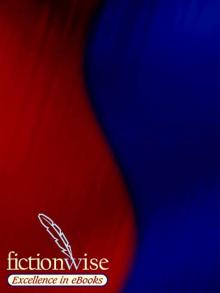 Repent, Harlequin! Said the Ticktockman
Repent, Harlequin! Said the Ticktockman Broken Glass
Broken Glass Other Glass Teat
Other Glass Teat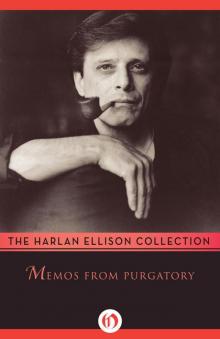 Memos From Purgatory
Memos From Purgatory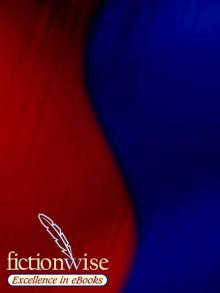 I Have No Mouth and I Must Scream
I Have No Mouth and I Must Scream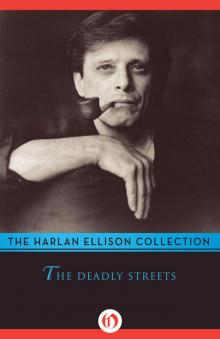 The Deadly Streets
The Deadly Streets The Glass Teat
The Glass Teat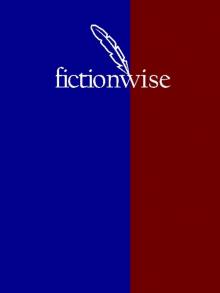 Paingod and Other Delusions
Paingod and Other Delusions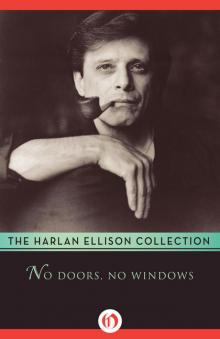 No Doors No Windows
No Doors No Windows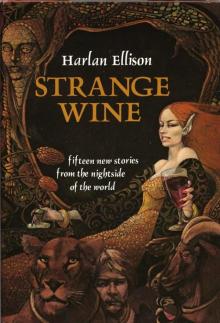 Strange Wine
Strange Wine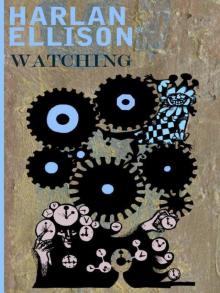 Harlan Ellison's Watching
Harlan Ellison's Watching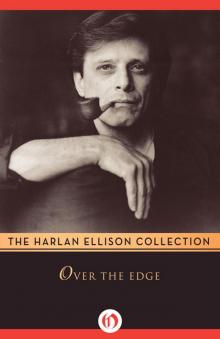 Over the Edge/An Edge in My Voice
Over the Edge/An Edge in My Voice Troublemakers: Stories by Harlan Ellison
Troublemakers: Stories by Harlan Ellison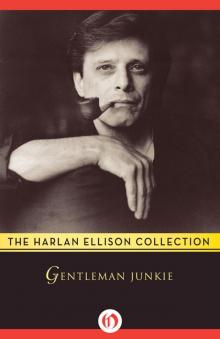 Gentleman Junkie and Other Stories of the Hung-Up Generation
Gentleman Junkie and Other Stories of the Hung-Up Generation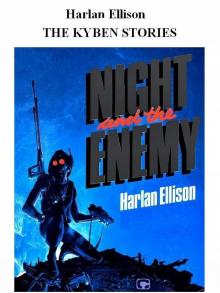 The Kyben Stories
The Kyben Stories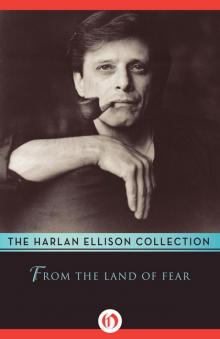 From the Land of Fear
From the Land of Fear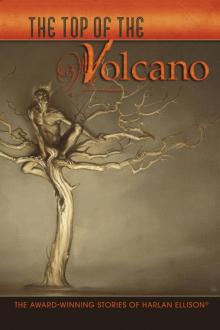 The Top of the Volcano: The Award-Winning Stories of Harlan Ellison
The Top of the Volcano: The Award-Winning Stories of Harlan Ellison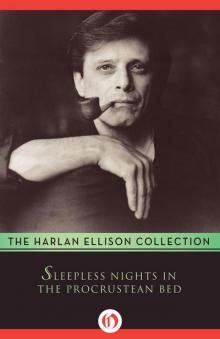 Sleepless Nights in the Procrustean Bed
Sleepless Nights in the Procrustean Bed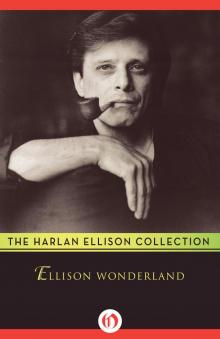 Ellison Wonderland
Ellison Wonderland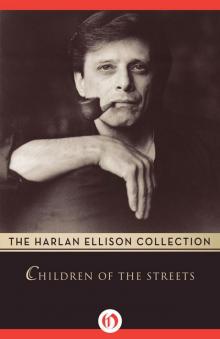 Children of the Streets
Children of the Streets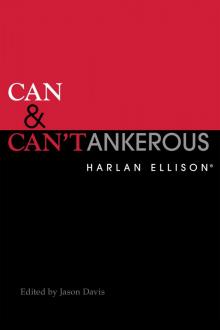 Can & Can'tankerous
Can & Can'tankerous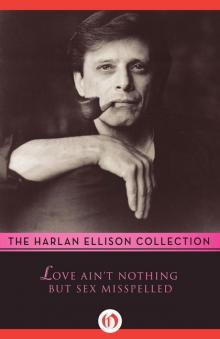 Love Ain't Nothing but Sex Misspelled
Love Ain't Nothing but Sex Misspelled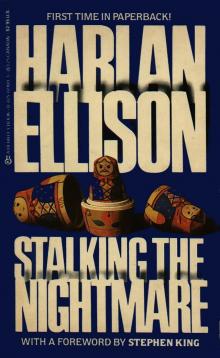 Stalking the Nightmare
Stalking the Nightmare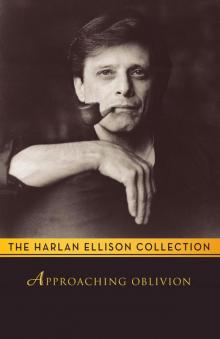 Approaching Oblivion
Approaching Oblivion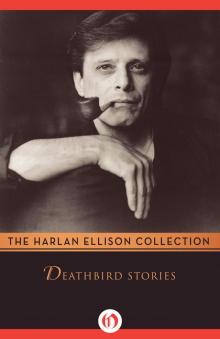 Deathbird Stories
Deathbird Stories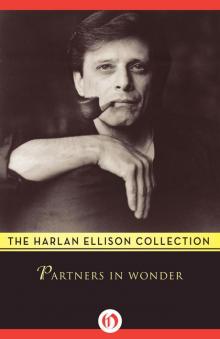 Partners in Wonder
Partners in Wonder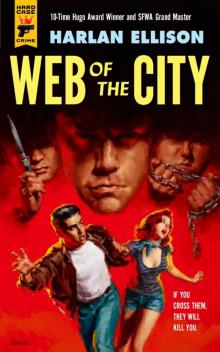 Web of the City
Web of the City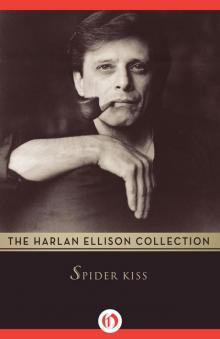 Spider Kiss
Spider Kiss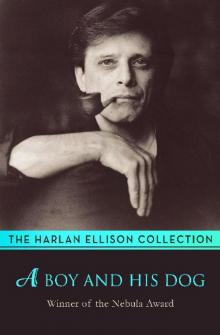 A Boy and His Dog
A Boy and His Dog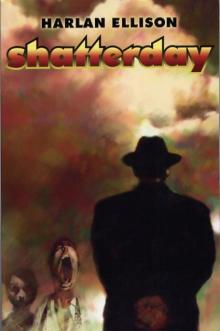 Shatterday
Shatterday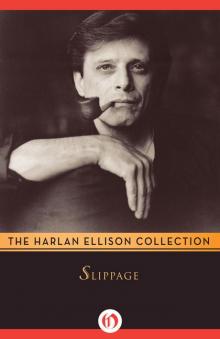 Slippage: Previously Uncollected, Precariously Poised Stories
Slippage: Previously Uncollected, Precariously Poised Stories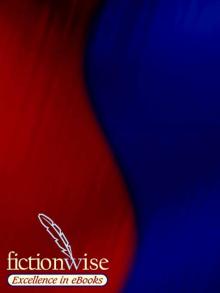 Repent, Harlequin! Said the Ticktockman
Repent, Harlequin! Said the Ticktockman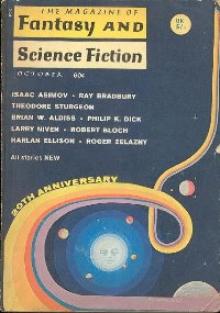 Come to Me Not in Winter's White
Come to Me Not in Winter's White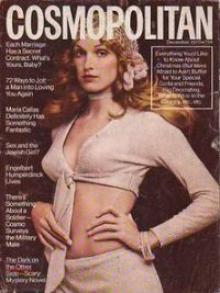 The Song the Zombie Sang
The Song the Zombie Sang The Other Glass Teat
The Other Glass Teat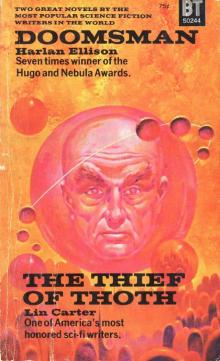 Doomsman - the Theif of Thoth
Doomsman - the Theif of Thoth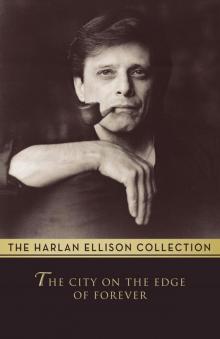 The City on the Edge of Forever
The City on the Edge of Forever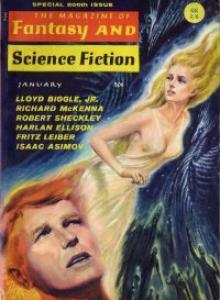 I See a Man Sitting on a Chair, and the Chair Is Biting His Leg
I See a Man Sitting on a Chair, and the Chair Is Biting His Leg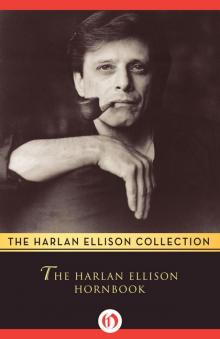 The Harlan Ellison Hornbook
The Harlan Ellison Hornbook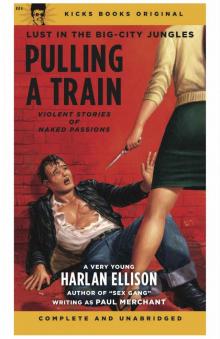 Pulling A Train
Pulling A Train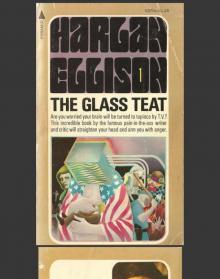 The Glass Teat - essays of opinion on the subject of television
The Glass Teat - essays of opinion on the subject of television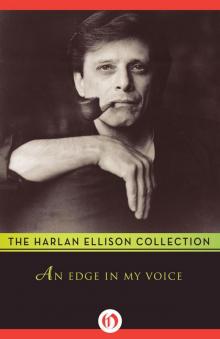 An Edge in My Voice
An Edge in My Voice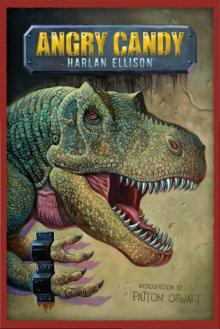 Angry Candy
Angry Candy Troublemakers
Troublemakers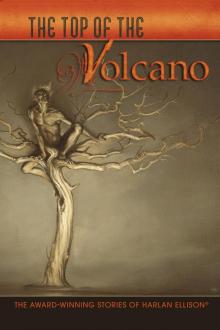 The Top of the Volcano
The Top of the Volcano Over the Edge
Over the Edge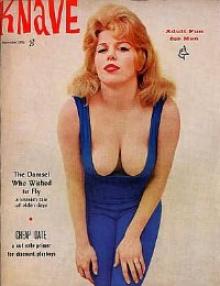 Survivor #1
Survivor #1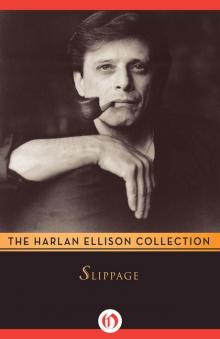 Slippage
Slippage